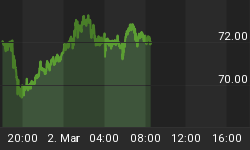One interesting fact in today's jobs report (see Diving Into the Payroll Report: Establishment +295K Jobs; Household +96K Employment, Labor Force -178K) was a drop in teenage unemployment of 1.7 percentage points while overall the unemployment rate fell by only 0.2 percentage points.
The only reason the overall rate fell was a plunge in labor force of 178,000. Household survey employment only rose by 96,000 vs. the establishment survey gain of an alleged +295,000.
The decline in teenage unemployment got me wondering: Where are the jobs, and what age groups got them? Here are a few seasonally adjusted charts from the St. Louis Fed.
Employment 16-19 Month Over Month

Employment 20-24 Month Over Month

Employment 25-54 Month Over Month

Employment 55+ Month Over Month

Age Categories
25-54 is a rather broad category. So is 55+. I would have liked to see finer breakdowns.
Additional data is available on the BLS data site directly, but even there, not all of the seasonally adjusted numbers I wanted were available. However, all of the age groups I wanted to see on a "not seasonally adjusted" basis were available.
Let's take a look at the two sets of tables I created from BLS data.
Not Seasonally Adjusted Employment Growth Year-Over-Year
| Age Group | Employment Growth Y/Y NSA | Population Growth Y/Y | Employment Relative to Population Growth |
| 16-19 | 456,000 | -34,000 | 490,000 |
| 20-24 | 409,000 | -26,000 | 435,000 |
| 25-34 | 866,000 | 617,000 | 249,000 |
| 35-44 | 69,000 | 108,000 | -39,000 |
| 45-54 | 464,000 | -207,000 | 671,000 |
| 55-59 | 175,000 | 279,000 | -104,000 |
| 60-64 | 296,000 | 543,000 | -247,000 |
| 65+ | 228,000 | 1,534,000 | -1,306,000 |
Note the huge outsized job gains in age groups 16-19 and 20-24. On an age-adjusted basis, the job gains are even greater.
Also the demographic shift to age group 25-34 puts the 866,000 job gain in that group in proper perspective. Relative to population growth, age group 35-44 actually lost jobs.
Retirement explains age groups 60-64 and 65+. Retirement (and forced retirement), along with rising disability fraud, also explains the drop in participation rate.
By forced retirement I mean people who want a job but do not have one, so they retire to collect Social Security because they need the income.
Seasonally Adjusted Employment Growth Month-Over-Month
| Age Group | Employment Growth M/M SA | Population Growth M/M |
| 16-19 | 86,000 | -6,000 |
| 20-24 | 103,000 | -20,000 |
| 25-34 | 108,000 | 37,000 |
| 35-44 | -86,000 | 2,000 |
| 45-54 | 78,000 | -55,000 |
| 55+ | -187,000 | -6,000 |
Perspective on the 96K Household Survey Gain
Of the 96,000 gain in employment this month, 189,000 of it came in the age group 16-24 even though that population group dropped by 26,000!
Please stop and think about that for a second.
Yes, retirement affected the overall results, but even so, age group 35-44 lost 86,000 jobs. Overall it seems reasonably safe to assume more high-paying jobs were lost this month than gained.
Still think this was a good jobs report?
Close scrutiny of both month-over-month and year-over-year data suggests we keep adding low wage jobs while boomers retire en masse.
These job reports are nowhere near as strong as most think.
















